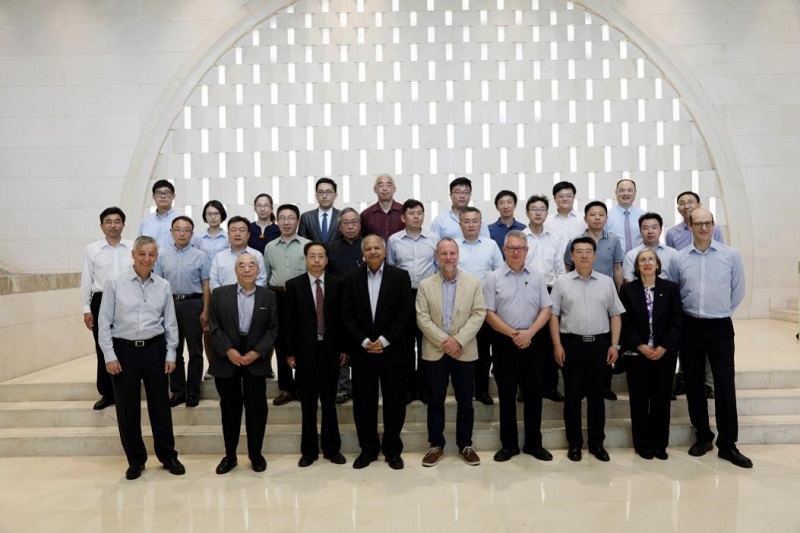
From May 15 to May 16, the disciplines making up Computer Science at Tianjin University launched an International Peer Review.
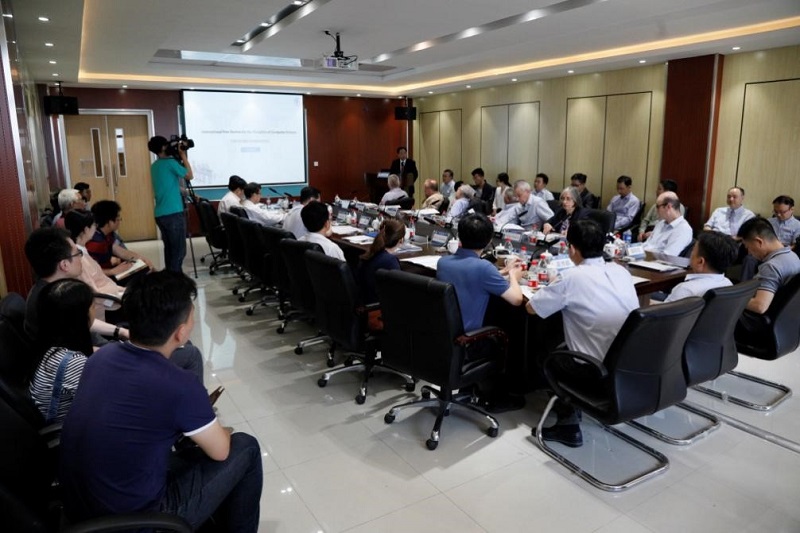
On May 15, the opening ceremony of the International Peer Review of Computer Science at Tianjin University was held at Peiyangyuan Campus.
Deputy Director Bai Haili spoke on behalf of the Tianjin Municipal Education Commission.
He stated: “The International Peer Review of academic disciplines regularly reviews the various disciplines' strengths, weaknesses, and relative international status in teaching, research, and development. The purpose of the International Peer Review is to understand the current situation, find gaps and determine the direction and intensity of resource deployment to prompt the healthy development of various disciplines. This is of great significance for the construction of world-class universities and first-rate disciplines, as well as the expansion of the international influence of schools and disciplines.”
Tianjin University Vice President, Wang Shuxin pointed out that the overall development goal of Tianjin University is to strive to build a world-class university, and the International Peer Review is important in achieving this goal.
Wang said he hoped that: “During the International Peer Review, experts will provide a comprehensive and objective assessment of the status and planning of computer science at Tianjin University. This would include: student training, scientific research, social services, team building, international cooperation, and development strategy and other aspects and putting forward valuable suggestions for improving the international competitiveness of Tianjin University’s computer science.”
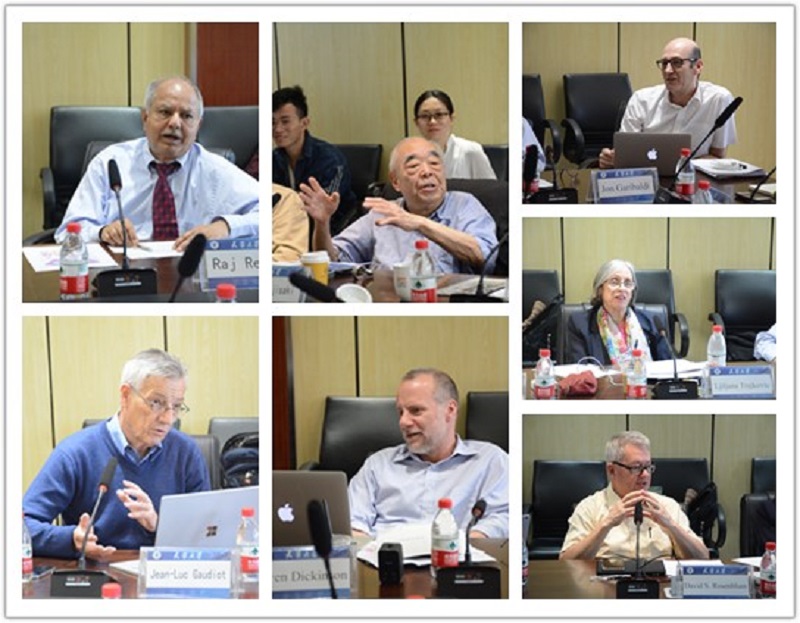
The seven experts invited by this International Peer Review were all well-known experts and scholars in the field of computers and came from world-class academic institutions in the field of computers. They were: Professor Raj Reddy, academician of the American Academy of Engineering, academician of the Academy of Arts and Sciences, and laureate of the A.M Turing Award; Professor Jean-Luc Gaudiot from the University of California, President of IEEE Computer Society; Professor Hiroya Fujisaki, Professor Emeritus of the University of Tokyo, honorary member and inaugural fellow of ISCA, honorary member of the Acoustical Society of Japan, fellow of the Acoustical Society of America, life member of IEEE, member of the Engineering Academy of Japan, and corresponding member of the Gottingen Academy of Sciences; Professor Ljiljana Trajkovic from the Simon Fraser University, Canada, IEEE Fellow, President of the IEEE Circuits and Systems Society and Associate Editor of IEEE Transactions; Professor Sven Dickinson from the University of Toronto, Editor-in-Chief of the IEEE Transactions on Pattern Analysis and Machine Intelligence (PAMI), Fellow of the International Association of Pattern Recognition; Professor Jon Garibaldi, Head of the School of Computer Science of the University of Nottingham, Editor-in-Chief of IEEE Transactions on Fuzzy Systems, head of the Intelligent Modeling and Analysis (IMA) research group and joint Director of the Advanced Data Analysis Center; Professor David S. Rosenblum from National University of Singapore, Fellow of the ACM and IEEE, Editor-in-Chief of ACM Transactions on Software Engineering and Methodology.
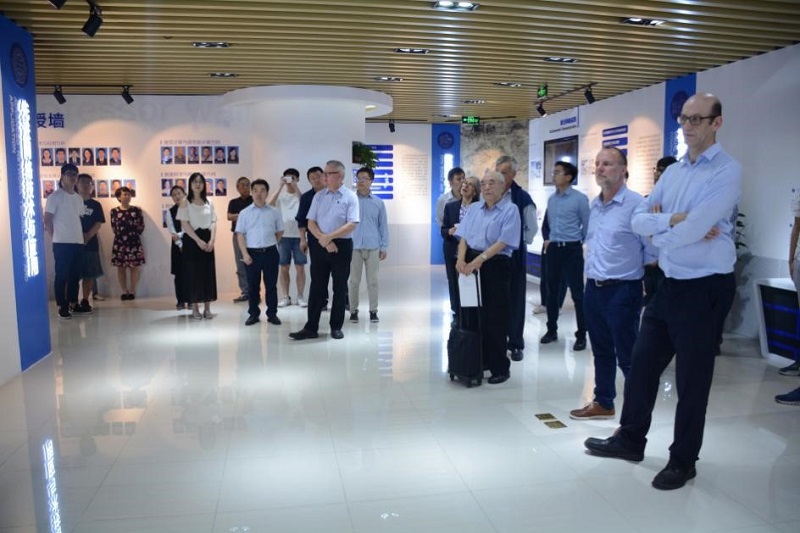
During the two-day on-site expert appraisal process, Professor Hu Qinghua, Associate Dean of the School of Computer Science, gave an overall report on the subject of the computer sciences. Professor Wei Jianguo, Associate Dean of the School of Software, gave a report on the teaching of computer science, and 7 teachers including Wang Longbiao reported on academic highlights. Professor Li Keqiu, Dean of the School of Computer and Software at Tianjin University, participated in the review and answered questions raised by the experts. In addition, the review experts also visited the exhibition hall of computer science research achievements, related laboratories and school libraries and held discussions with the teachers and the representatives of students of the School of Computer Science and the School of Software.
On May 16, the feedback meeting of the International Peer Review of the computer science was held. The members of the expert group provided a comprehensive and objective evaluation of the status quo and planning of computer science at Tianjin University in student training, scientific research, social services, team building, international cooperation, and development strategies and also gave valuable suggestions on the improvement of the international competiveness of computer science at Tianjin University.
The experts emphasized that in order to achieve the goal of building world-class computer science, the establishment of the Department of Intelligence and Computation must be taken as an opportunity to further increase the level of internationalization, enhance talent introduction and strengthen cross-disciplinary collaboration (CS+X). Vice President Wang Shuxin made a concluding speech at the feedback meeting. He pointed out that in this International Peer Review of computer science that we looked at our own deficiencies from an international perspective, discovered gaps with world-class disciplines and first-rate universities and received constructive suggestions from the expert group. It provided important ideas and directions for the next step in the development of computer science. The school will take this International Peer Review as an opportunity to use experts’ opinions as an important reference to accelerate the construction of a world-class university and first-rate disciplines.
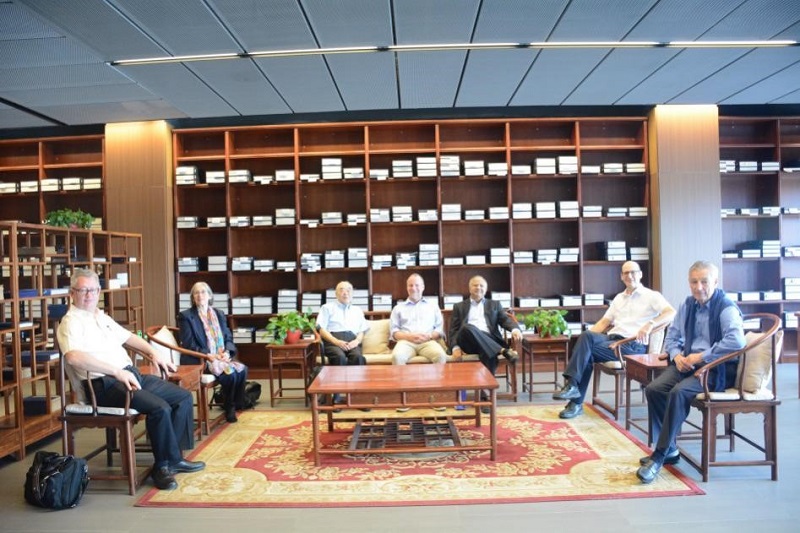

Tianjin University President Zhong Denghua met all the experts and commentators and thanked them for their valuable suggestions for the construction of computer science at Tianjin University. He pointed out that it is currently a historical opportunity for the development of computer science. He hoped that computer science could aim at becoming world-class, continue to expand open cooperation and cultivate first-class talent, conduct first-class scientific research, produce first-rate scientific research results, and accelerate the construction of world-class disciplines.
By: Li Xiaoxiao
Editors: Sun Xiaofang and Ross Colquhoun






